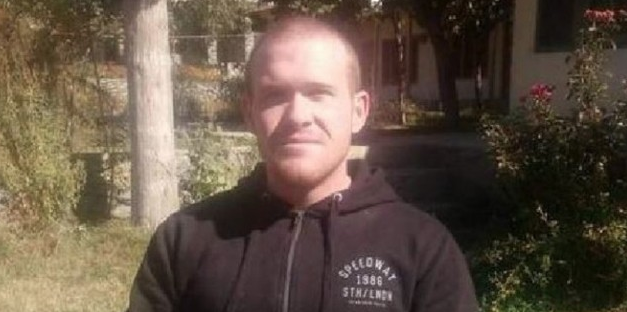And this cover-up includes evidence of his ammunition purchase

Evidence given by ministers and public sector bosses to the Royal Commission of Inquiry into the Christchurch terrorist attack will be suppressed for 30 years.
And an interview with the Australian-born terrorist will never be released out of concern it could inspire and assist further attacks.
The inquiry’s report was provided to Internal Affairs Minister Jan Tinetti yesterday and will be publicly released on December 8, after first being shared with victims’ families and political party leaders.
It will detail any failings by police, spies, and other government agencies in the leadup and aftermath to the mosque shootings on March 15, 2019, in which 51 people were killed.
In a final minute issued yesterday, commissioners Sir William Young and Jacqui Caine said evidence and submissions by public sector chief executives and current and former ministers would be subject to non-publication orders for 30 years.
National security was cited as a reason for the suppressions. Full publication of the evidence could provide a “how-to manual for future terrorists”, the commissioners said. Those concerns would likely have “dissipated” in 30 years, they said.
They also said they wanted to protect the confidentiality of the people who spoke to the commission.
“We told them that our process was private and that we would not publish in our report what they told us without first going back to them.
“We did this with a view to encouraging candour, which we received.”
Islamic Women’s Council national coordinator Anjum Rahman said the suppressions raised concerns about accountability.
“If there are significant failings, the people at the top are responsible for that. And so I find it difficult that those people would continue in their roles.
“Also, for past ministers of the Crown who are included in that, there is no accountability for them unless the report itself contains sufficient evidence and submissions that recounts any failings, negligence, incompetence on their part.”
/cloudfront-ap-southeast-2.images.arcpublishing.com/nzme/4M6Q7YRANCE4S5ARJGCTOTA2MM.jpg)
Rahman said if the inquiry did not provide necessary accountability, a coroner’s inquest could be required. She noted that would be a stressful process and could only occur at the request of victims.
A coroner’s inquest would also allow exploration of aspects of the attack which the Royal Commission had ruled out, such as the role of social media companies or recommendations for gun reforms.
The commissioners noted that some members of Muslim communities, academics and public sector agencies wanted the inquiry’s interview with terrorist Brenton Tarrant to be published.
“Some people are frustrated that, by his guilty pleas, the individual avoided a trial at which the reasons for the terrorist attack might have been explored,” their minute said.
The transcript would be provided to the New Zealand Police and the New Zealand Security Intelligence Service (SIS) to help them improve their knowledge of extreme right-wing and lone actor terrorists, the commissioners said.
But it would not be publicly released because it included details about how he planned and prepared for the attack and could enable further attacks.
It also included acknowledgements by the terrorist about what he felt were “mistakes” in the way he carried out the terrorist attack – which could be read by potential terrorists as “advice”.
Furthermore, his motives and “reasoning” could be used to provide a platform for the dissemination of his views.
A number of individuals involved in the inquiry would also have their identities suppressed, including the police officers who vetted Tarrant for his firearms licence and the people who provided references for him.
Tinetti will table the report in Parliament on Tuesday, December 8.
“I know this will have been a challenging process for wh?nau, survivors and witnesses of the terrorist attack and I want to acknowledge their engagement,” she said in a statement yesterday.
“I want to thank Commissioners Sir William Young and Jacqui Caine for seeking out and honouring those voices in their report.”
The report would be shared confidentially with families and victims before the public release.
“It is only right that they have the space and opportunity to privately reflect on the findings. We ask people to respect their privacy during this time,” Tinetti said.
Party leaders would also receive the report before it was publicly released.
Tarrant was sentenced to life imprisonment without parole in August.
-NZ Herald

